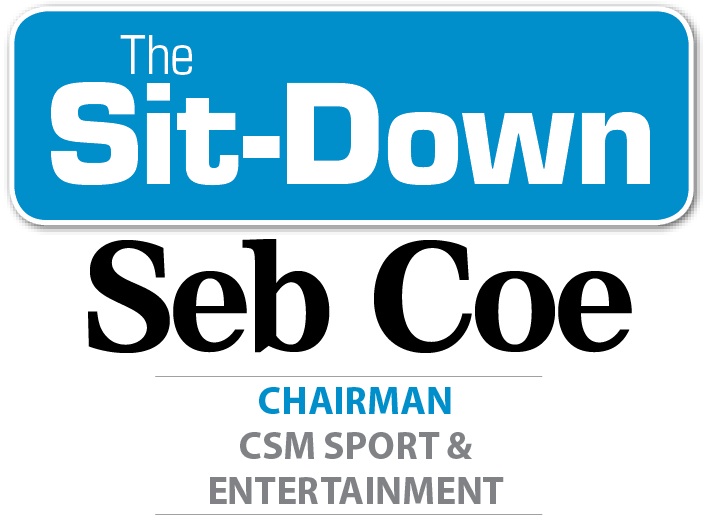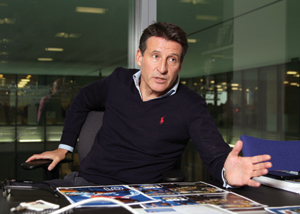
T here’s a big, big difference between a vision and a mission statement. Mission statements are often just trite and merely state the obvious. The vision is not something you can settle upon because you think it’s what people would expect you to say.
The best visions are not too tightly prescriptive. The best example of that, of course, is Disney. The Disney vision is to make people happy. It never mentions anything about cartoons or Epcot … or the Mighty Ducks. It’s simple. It’s to make people happy.
 |
Photo by: AP IMAGES
|
When I became chairman of the [London 2012] bid,
we had figured out an awful lot of things of a mechanistic nature. We knew we had to create stadia, we knew we had to integrate, we knew we had to build partnerships, we knew we had to get athletes to and from the airport. There was an awful lot of “how,” but nobody had sat down and asked the question, “Why are we doing that?”
The “why” becomes the vision. The “why” for us was very clear. I couldn’t see any other vehicle in my lifetime that gave us the opportunity to connect with young people and inspire them through sport.
If you coalesce around your vision, it’s not just your road map. It’s your safety valve because so often somebody around the table would go, “Guys, what is it we said we were going to do?”
The next task is making sure your vision is aligned to all your stakeholders. If you are wedded to your vision, then it keeps the glue of the stakeholders solid. If you play fast and loose with your vision and got your stakeholders to buy into that vision, why would you expect them to be wedded to it? You can’t say, “I know we said that, but, guys, that’s actually not what we mean.”
It’s really important you hold onto that vision. … Keep it simple. Who on earth … is going to have a problem when you say, “Our mission is to use the power of the Games to inspire lasting change”?
Promoting sport is not strictly about health. It’s about teamwork. It’s about esprit de corps. It’s about bringing communities together.
The London Games created a vibrant, caring community. They were the catalyst for bringing 80 percent of British schools into a national program. The Games were the ability to create 11,000 homes and 10,000 jobs.
Sport is not simply about the crash-bang-wollop of Chelsea-Arsenal on a Tuesday night. Sport is far more important than that. Had it been as narrowly defined, it wouldn’t have survived three weeks, let alone 33 centuries.
I’m an absolute newspaper junkie, but I’m afraid 20 erudite paragraphs in The Daily Telegraph written about track and field is now a very, very small sliver of what’s out there.
I’m an economist by training. The best definition you’ll probably currently have of consumer sovereignty is the way anyone under the age of 21 consumes and creates information and content. I watch my kids on a Saturday night. Television is just a small part of it. They’re on their laptop. Their phone.
All these kids are doing [social media] and they’re not playing sport. I see that as a huge, huge opportunity because you can get to them. If you’re smart you can get to them in a quicker and more targeted way than you could ever have been able to get to young people. You can dog-whistle the message.
Social media comes with its own problems. When Kerron Clement, 400-meter hurdler, tweets that he sat on the coach for three or four hours going from Heathrow to the athlete village, it doesn’t really matter that it’s only two hours and it doesn’t really matter that the Olympic [road] network is not up and running and it doesn’t really matter that, “Yeah, the coach missed a turn that added 10 minutes.” You’re dealing with that for two days.
There’s no excuse now. There are so many platforms and so many channels of entrée to young people. Just use them.
I choose brave people. Around the Olympic project, they had to be brave. This was not a project for the faint of heart.
I wasn’t a chief executive. But my skill as chairman was to identify really talented people not necessarily from the obvious walk of life. Hardly any of our main board of directors came from a sport background.
I’d seen the Games through so many different angles. I’d been a competitor. I’d been vice president of an international federation. I’d been on commissions in the IOC. I know what good looked like. I know what bad looked like as well.
This organization has only a life cycle of seven years. You double your number [of staff] every year. You start off with 60 people in your bid and on the eve of the Games you end up with 8,500. It’s bigger than British Aerospace. You have to find people that can transition through that.
I look for teamwork. Herculean hard work. You can’t tell that in an interview process. But you know by virtue of what they have done that they could not have done what they did in their walk of life by cutting corners or doing a 9 to 5.
You want self-starters. You want people that are self-motivated. If a coach is spending half his time motivating the team, then clearly they’re doing the wrong thing, or they’re the wrong person, or they’ve got the wrong people out there.
Nothing good or sustainable happens overnight. It doesn’t matter whether you’re going to become an Olympic athlete or a CEO. Somewhere in your background there is probably going to be 10,000 hours of diligent, focused training.
This is the challenge now for young people. Reality television tells them that it’s not a 10-year process. It can happen in six hours. That’s not reality.






